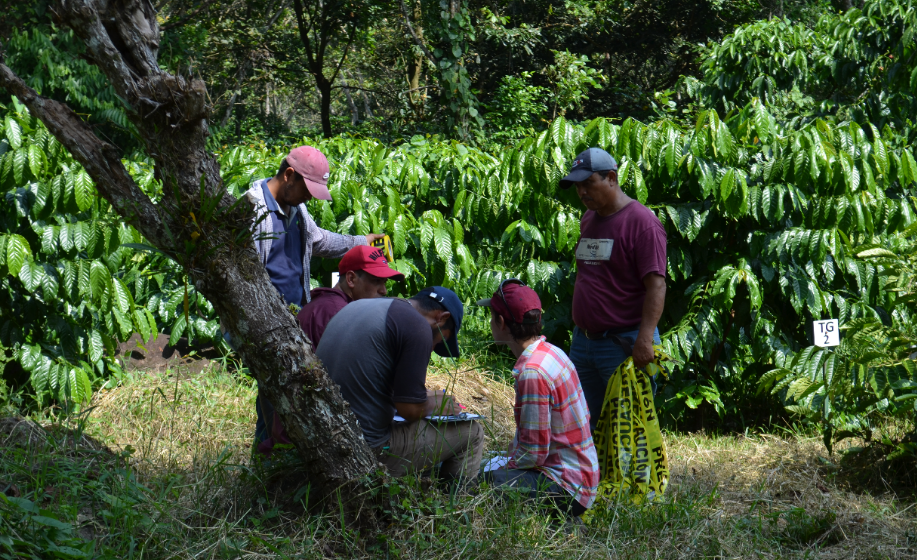- Home
- Worldwide
- CIRAD worldwide
- Projects
- BOLERO project
Breeding for coffee and cocoa resilience in organic cropping systems based on improved root-stocks - BOLERO

© B. Bertrand, Cirad
Issues
Plant breeding is one of the solutions being tested to adapt to climate change. However, due to their long life cycle and their environmental sensitivity, fruit crops such as coffee and cocoa present a major challenge in this respect, and breeders generally lack the capacity to rapidly generate new cultivars in response to a crisis.
Description
Fruit tree crops, represented by more than 50 species grown across more than 100 million hectares, are seriously impacted by climate change. Through grafting, rootstocks can enhance tolerance to abiotic and biotic stresses, thereby providing an effective way to increase food production.
The goals of the BOLERO project are:
- To develop phenotyping tools;
- To use these tools to evaluate coffee and cocoa root system architecture traits, including grafted plants, under controlled conditions and in the field;
- To decode the microbiome of coffee/cocoa plants;
- To use these resources to build predictive models of root system architecture traits in terms of genotypic data and microbiome composition and abundance in order to accelerate coffee/cocoa breeding.
This data collection will be used in combination with a data hub to study genetic diversity in fruit tree crops and to use this to dissect the genetic basis of root system architecture traits and their plasticity.
This project will propose rapid, low-cost breeding strategies to create rootstocks, which will be tested in low-input coffee/cocoa farming systems.
The agronomic performances and profitability of the grafted plants will be assessed in Vietnam.
BOLERO will build on the knowledge of the large European scientific community, the support of national institutes in the tropical countries and the expertise of industries to conduct a multidisciplinary study on rootstock breeding, with coffee as a model and cocoa as a proof of concept, and to propose tools and techniques that are easily transferable to all fruit tree crops.
This project will develop and demonstrate the Open Source Seed Initiative for the first time on a large scale. BOLERO will thus contribute to the Biodiversity and Farm to Fork strategies, through its significant impact on the way in which crops are bred and on the use of soil and biodiversity beneficial biota, which will result in adaptation to climate change, inputs used and soil carbon sequestration.
The objectives of BOLERO are:
- Understanding root traits;
- Strengthening root phenotyping capacities;
- Developing breeding strategies with more effective interactions;
- Using and promoting genetic resources;
- Developing more tolerant crops and trees.
Expected results
- Understanding coffee and coca root system architecture, root biomass and its temporal dynamics, as well as root system architecture translation from seedling stage to adult stage.
- Identifying root system architecture traits that are advantageous to plant growth, drought tolerance, graft recovery mechanisms, and water and nitrogen use efficiency.
- Identifying candidate genes for root system architecture trait plasticity to abiotic stresses.
- Determining the importance of the root microbiota in coffee and cocoa crops and the way in which this knowledge can be incorporated into future breeding of tree crops optimised through the microbiome.























